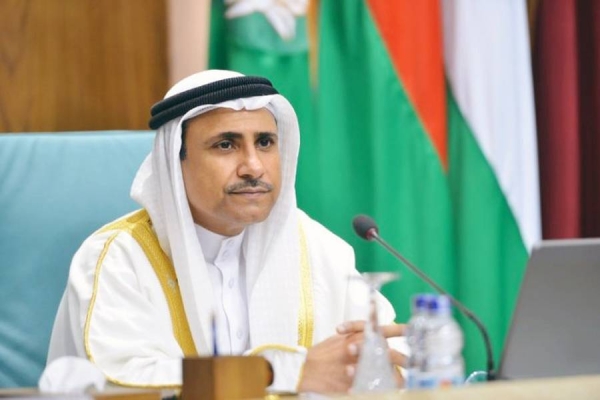
While policymakers and commentators are still trying to understand what happened at the Helsinki summit between US President Donald Trump and Russian President Vladimir Putin last week and what it means for the Middle East, some matters have become clear.
Before the summit, the US and Israel had publicly stated their desire for a Syria without Iran’s presence. Israeli Prime Minister Benjamin Netanyahu had even told Russian President Vladimir Putin that he would back the Assad government if Iranian forces could be made to leave Syria. He should have known that Syrian President Bashar Al-Assad’s staying in power hardly needs Israel’s sanction, nor does Russia either have the capacity, or even the wish, to see Iran out of Syria.
In the event, all parties can now say they gained something from Russian diplomacy. Israel got the 80-kilometer Iran-free cordon sanitaire it wanted at its northern border. In the face of US sanctions, Iran obtained Putin’s promise to invest $50 billion in its hydrocarbon sector and for the “oil-for-goods” arrangement through which Iran will obtain Russian goods in return for its oil, which Russia will then sell in international markets. At Helsinki, there was no mention of Iran’s eviction from Syria.
Putin has also agreed to work with western powers by merging the Russia-led Astana peace process (partnering with Iran and Turkey) with the peace initiative of the “small group” — consisting of France, Britain, Germany, Jordan, the US and Saudi Arabia — which French president Emmanuel Macron has been seeking for a year.
Another positive for the US and its western allies has been the agreement to address Syria’s humanitarian crisis, including the return of refugees from neighbouring countries (a boon for European countries coping with the influx of refugees), and later, the initiation of the process of reconciliation and reconstruction. Trump backed Putin unconditionally, saying: “If we can do something to help the people of Syria get back into some form of shelter and on a humanitarian basis ... I think that both of us would be very interested in doing that.”
Two days after Helsinki, Russia announced the establishment of the Centre for the Reception, Allocation and Accommodation of Refugees, which will “monitor the return of Syrian refugees to their places of permanent residence” and the delivery of humanitarian aid and construction material. According to The Washington Post, Russia has already sent formal proposals to Washington for joint US-Russia efforts to fund reconstruction in Syria and facilitate the return home of millions of Syrian refugees.
For the rest, Helsinki’s outcome is subject to diverse interpretations.
Vladimir Putin’s reference to resolutions from a bygone era makes sense only if we go beyond Syria and see it in the context of the rapidly deteriorating situation in Palestine.
Talmiz Ahmad
The most interesting feature of Putin’s public remarks, made in the context of Israel’s security concerns about the occupied Golan Heights, was his recalling of UN Security Council Resolution (UNSCR) 338, which had been passed by the security council in October 1973 and had ended the Syria-Israel military confrontation.
Putin called for “full compliance” with this resolution, saying that this would bring peace to the Golan Heights, promote peace between the two countries and provide security to Israel. He added that Mr Trump had paid “special attention” to this matter.
Some Israeli and Arab commentators seem to see this reference merely as restricting Iran’s presence in Syria. This is a very narrow perspective. It would be useful to recall that the three-line Resolution 338 had pointedly called for the immediate and full implementation of the earlier UNSCR 242 and the initiation of negotiations between the Arab and Israeli sides to establish “a just and durable peace in the Middle East.”
Putin’s reference to resolutions from a bygone era makes sense only if we go beyond Syria and see it in the context of the rapidly deteriorating situation in Palestine and his conviction that Middle East security and long-term peace requires addressing the Palestinian issue effectively.
The timing of the reference is important. It is a pointed rebuff to the Trump-backed “ultimate deal” being promoted by his son-in-law and adviser, Jared Kushner, in tandem with Netanyahu. This reportedly calls for the obliteration of Palestinian aspirations and their identity by fobbing them off with economic sops in the shape of an airport, a seaport, a power station, a desalination plant and an industrial zone in the Sinai area abutting the Rafah crossing of Gaza.
By rejecting the Kushner plan, Putin has joined the Arab leaders of Egypt, Saudi Arabia, the UAE, Qatar and Jordan, whom Kushner had visited recently. They had then firmly conveyed to the US emissary that Palestinian rights were not negotiable and that they stood by the Arab peace initiative that called for Israel’s vacation of occupied territories and the setting up of a sovereign Palestinian state, with East Jerusalem as its capital.
The passage by the Knesset on July 19 of the “Basic Law” that declares Israel as the nation-state of the Jewish people has clearly defined Israel as an “apartheid” state on ethnic and religious basis. It complements the Kushner plan in seeking to destroy Palestinian presence and identity in their own homeland.
Amid the divisions and conflicts across the Middle East, Arab leaders and people have remained united on the Palestinian issue. This unity will be severely tested in coming times.
Talmiz Ahmad is a former Indian diplomat
Disclaimer: Views expressed by writers in this section are their own and do not necessarily reflect Arab News" point-of-view












